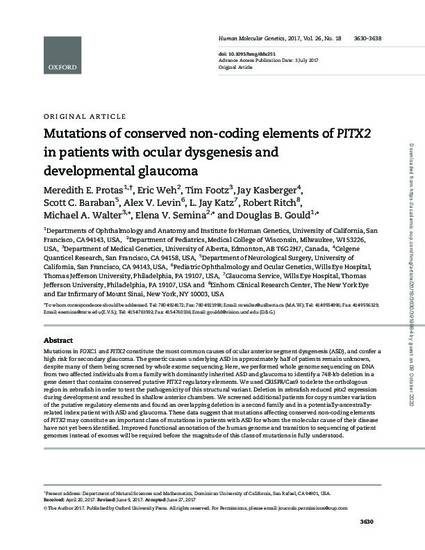
Mutations in FOXC1 and PITX2 constitute the most common causes of ocular anterior segment dysgenesis (ASD), and confer a high risk for secondary glaucoma. The genetic causes underlying ASD in approximately half of patients remain unknown, despite many of them being screened by whole exome sequencing. Here, we performed whole genome sequencing on DNA from two affected individuals from a family with dominantly inherited ASD and glaucoma to identify a 748-kb deletion in a gene desert that contains conserved putative PITX2 regulatory elements. We used CRISPR/Cas9 to delete the orthologous region in zebrafish in order to test the pathogenicity of this structural variant. Deletion in zebrafish reduced pitx2 expression during development and resulted in shallow anterior chambers. We screened additional patients for copy number variation of the putative regulatory elements and found an overlapping deletion in a second family and in a potentially-ancestrally-related index patient with ASD and glaucoma. These data suggest that mutations affecting conserved non-coding elements of PITX2 may constitute an important class of mutations in patients with ASD for whom the molecular cause of their disease have not yet been identified. Improved functional annotation of the human genome and transition to sequencing of patient genomes instead of exomes will be required before the magnitude of this class of mutations is fully understood.
Available at: http://works.bepress.com/meredith-protas/20/
